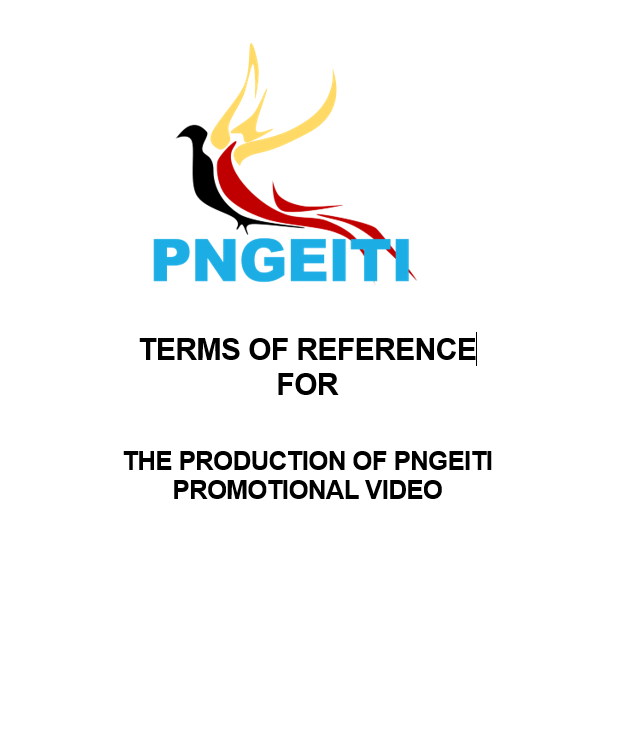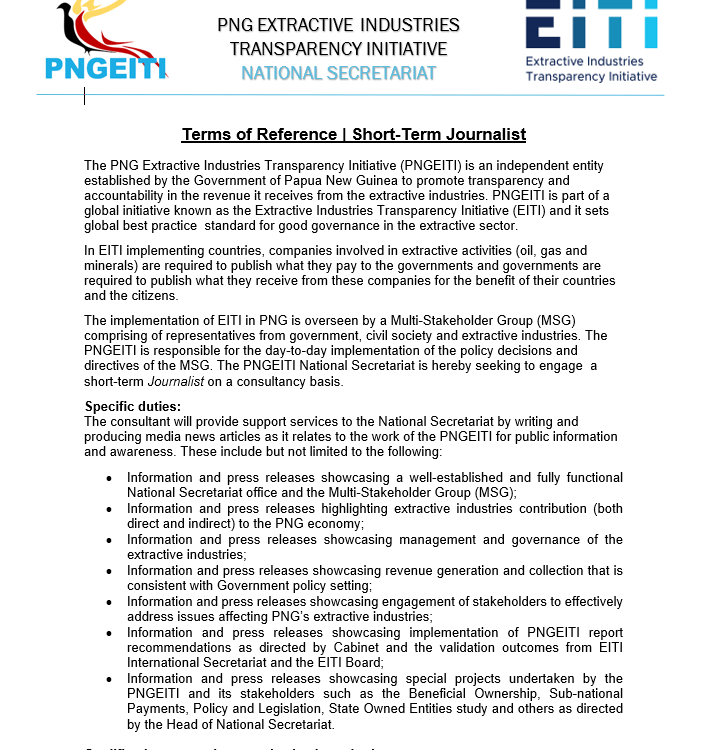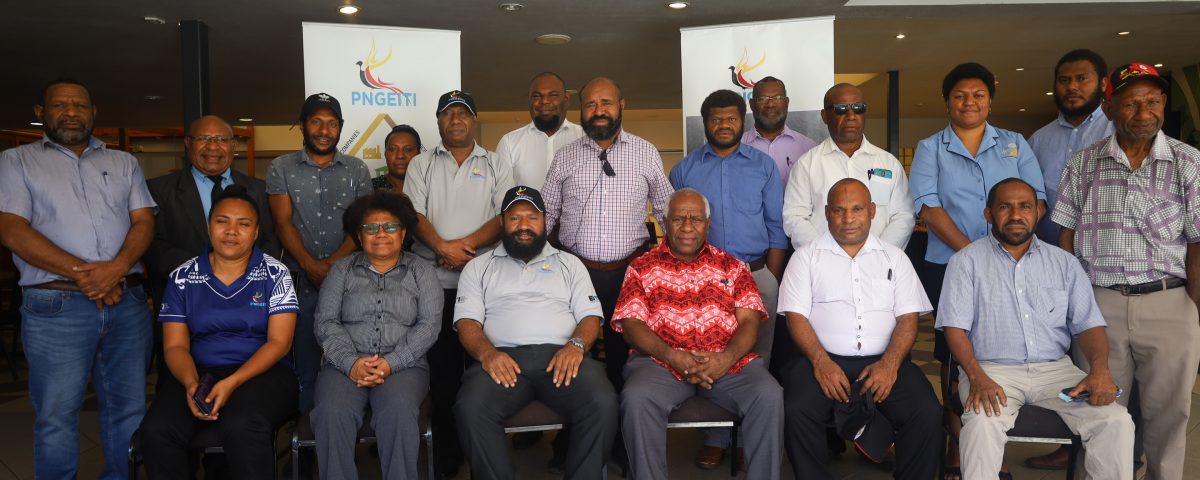improving extractives governance
PNGEITI Report Releases
The EITI holds all implementing countries to the same global standard. Through Validation, the EITI’s quality assurance mechanism, implementing countries are assessed on their ability to meet the provisions of the EITI Standard.

Transparency and Honesty cornerstone Guiding Principles for resource governance: AGAROBE
The final leg of the Papua New Guinea Extractive Industries Transparency Commission Bill covering the Southern Region is underway in Port Moresby this week. Central Governor Robert Agarobe opened yesterday the workshop with the key message that honesty and transparency must be the cornerstone principle guiding the management of PNG’s resource to derive best value for development. Mr. Agarobe gave the backing of the Central Province on the proposed law to transition the PNGEITI National Secretariat into a statutory body to be known as the “PNG Extractive Industries Transparency Commission”. “The Central Provincial Government and its people recognize the need to have visibility of the various revenue streams and other benefits received from our extractive projects in the country, and particularly in our province,” Mr. Agarobe said. “Our government also recognizes the importance of supporting the work of the PNGEITI in transforming itself into a Statutory Commission to effectively administer and sustain EITI implementation in PNG. We also recognize the importance of having an efficient and an independent administrative body or a commission that would enable better management and governance of the extractive sector and the proposed EITI Commission law to transition the PNGEITI National Secretariat currently parked at the Department of Treasury is a step in the right direction going forward,” he said. PNGEITI Head of National Secretariat Mr. Lucas Alkan said: “The sustainability and effectiveness of implementing EITI in PNG is dependent on having it legally established”. Mr. Alkan said a NEC decision on which the PNGEITI operations rode held “no legal obligation to reporting entities to ensure compliance. “Furthermore, the NEC Decision that created PNGEITI holds limited powers in enforcing compliance therefore presenting risks susceptible to being made redundant and dissolved,” Mr Alkan explained. Voluntary compliance in EITI reporting is high, however, comprehensiveness in reporting is low. These incomprehensiveness results from the absence of EITI enabling legislation. To mitigate incomprehensiveness in the short term, the State Solicitors and MRA have prescribed EITI reporting and transparency undertakings in mining MOA agreements. So far EITI provisions are captured in the K92 and Woodlark Mining contractual agreement with all future mining MoAs to receive similar undertakings. Limited visibility in revenue reporting over the years have hindered informed decision making for effective governance in the extractive sector. The introduction of the EITI concept and the subsequent intervention of the PNGEITI National Policy now sets the framework for effective governance, not only in the mineral sector, but also in the non- mineral sector utilizing the EITI model for improved transparency and accountability. “Mr Alkan said. ENDS/ Image Caption: Head of the PNGEITI National Secretariat Mr. Lucas Alkan and Central Governor Hon Robert Agarobe at the Stanley Hotel yesterday where PNGEIT Commission bill for the Southern Region is underway.

Terms of Reference for the Production of PNGEITI Promotional Video
PNGEITI-PROMOTIONAL-VIDEO_PRODUCTION-2021-TOR Download Preview

Terms of Reference (ToR) for a Short-term Journalist
ToR-Short-Term-Journalist-003 Download Preview

EOI for a Short-term Journalist
The PNG Extractive Industries Transparency Initiative (PNGEITI) is an independent entity established by the Government of PNG to promote transparency and accountability in the revenue it receives from the extractive industries. The Secretariat is seeking to engage a short-term journalist to provide consultancy services. The Consultant will be responsible for providing support services by writing and producing media news articles or related works promoting the activities of PNGEITI for public information and awareness. These include: Information and press releases showcasing a well-established and fully functional National Secretariat office and the multi-stakeholder group (MSG), Information and press releases highlighting extractive industries contribution (both direct and indirect) to the PNG economy, Information and press releases showcasing management and governance of the extractive industries; Information and press releases showcasing revenue generation and collection that is consistent with policy setting; Information and press releases showcasing engagement of stakeholders to effectively address issues affecting PNG’s extractive industries; Information and press releases showcasing implementation of PNGEITI report recommendations as directed by Cabinet and the EITI International validation outcomes and Board decisions for PNG; Information and press releases showcasing special projects undertaken by the PNGEITI and its stakeholders such as Beneficial Ownership, Sub-national Payments, Policy and Legislation and others as directed by the Head of National Secretariat. Qualifications and Experiences: The consultant must possess tertiary qualifications; Bachelor’s Degree in Communications, Journalism, Information and Communication Technology (ICT). Have experience in journalism or in the media and communications field and should have at least 3 years’ relevant experience in producing news articles and related works as specified in the Terms of Reference (ToR). Some experience in writing on the PNG extractive sector including oil, gas and mining would be an advantage but not necessary. Duration of Engagement: The engagement will be for a period of 8 months from May to December, 2021. Interested individuals may obtain a copy of the Terms of Reference (ToR) which provides specific details on the tasks involved. ToR can be downloaded: tor-short-term-journalist Applications: Expression of Interest (EOI) must be received no later than 4:30 pm, 27 April, 2021 Email to Francis_Diakon@treasury.gov.pg or hand deliver to the Secretariat Office located at the Treasury Building, Waigani. Authorised by: Lucas Alkan Head of National Secretariat

Terms of Reference (ToR) for Beneficial Ownership Report preparation
TOR-for-BO-Report-Preparation Download Preview

Governor Numu in support of the establishment of the Extractive Industries Transparency Commission
Governor for Eastern Highlands Province Hon Peter Numu has given his full support for the establishment of the Extractive Industries Transparency Commission. Governor Numu opened the lower Highlands Consultation workshop on the PNG Extractive Industries Transparency Commission Bill in Goroka on Monday, September 6th, 2021. He welcomed the State legal and policy officials from key government departments, Department of Petroleum and Energy, Department of Treasury, Constitutional and Law Reform Commission, National Economic and Fiscal Commission, Internal Revenue Commission, including Provincial administration key representatives from Western Highlands, Jiwaka, Chimbu, Eastern Highlands, and the PNGEITI staff who gathered in Goroka for the week-long consultation. “As the Governor of Eastern Highlands Province, I am in support of transparency and accountability in the extractive sector. “The government must be accountable and it must make sure the developer is transparent in the extraction of our natural resources,” he said. “Our government recognises the need to have transparency and visibility of revenue received from the extractive projects and other sectors in the country particularly in our province. “We also acknowledge the importance of having factual data from the sector to ensure we are able to make informed decisions in the governance of the sector. He added that Eastern Highlands Province contributes significantly to the economy of the country through coffee production and exports. The province is a major coffee producer and from coffee exports revenue is generated for the country, while local farmers benefit directly from selling their coffee produce. “The province also hosts the K92 Mine located in the Kainantu District, that started four years ago. The company K92 Mine Ltd paid K25 million to the government last year, given the tough economic times and is looking at a promising future for the province,” he said. “Our government also recognises the importance of supporting the work of the PNGEITI in transitioning to an independent entity as proposed ‘Commission’ to fully implement the EITI requirements and best practice Standards that PNG has signed up to implement for our benefit. “We look forward to providing our comments and views on the proposed PNGEITI Commission Law and work in close consultation with the PNGEITI as it promotes good governance, accountability and transparency in the resources sector. He acknowledged the National Secretariat’s leadership and the government agencies for their participation and contribution to drafting of the Commission law and the consultation process and reiterated that consultation is the way forward as it captures our people’s views in framing this important legislative requirement. Photo caption: Eastern Highlands Governor Hon Peter Numu (seated third from left) with stakeholder representatives from provinces Western Highlands, Chimbu, and Eastern Highlands including the State legal and policy officials and the National Secretariat staff at the Bird of Paradise Hotel after he officially opened the lower highlands regional consultation on the PNGEITI Commission Bill.

